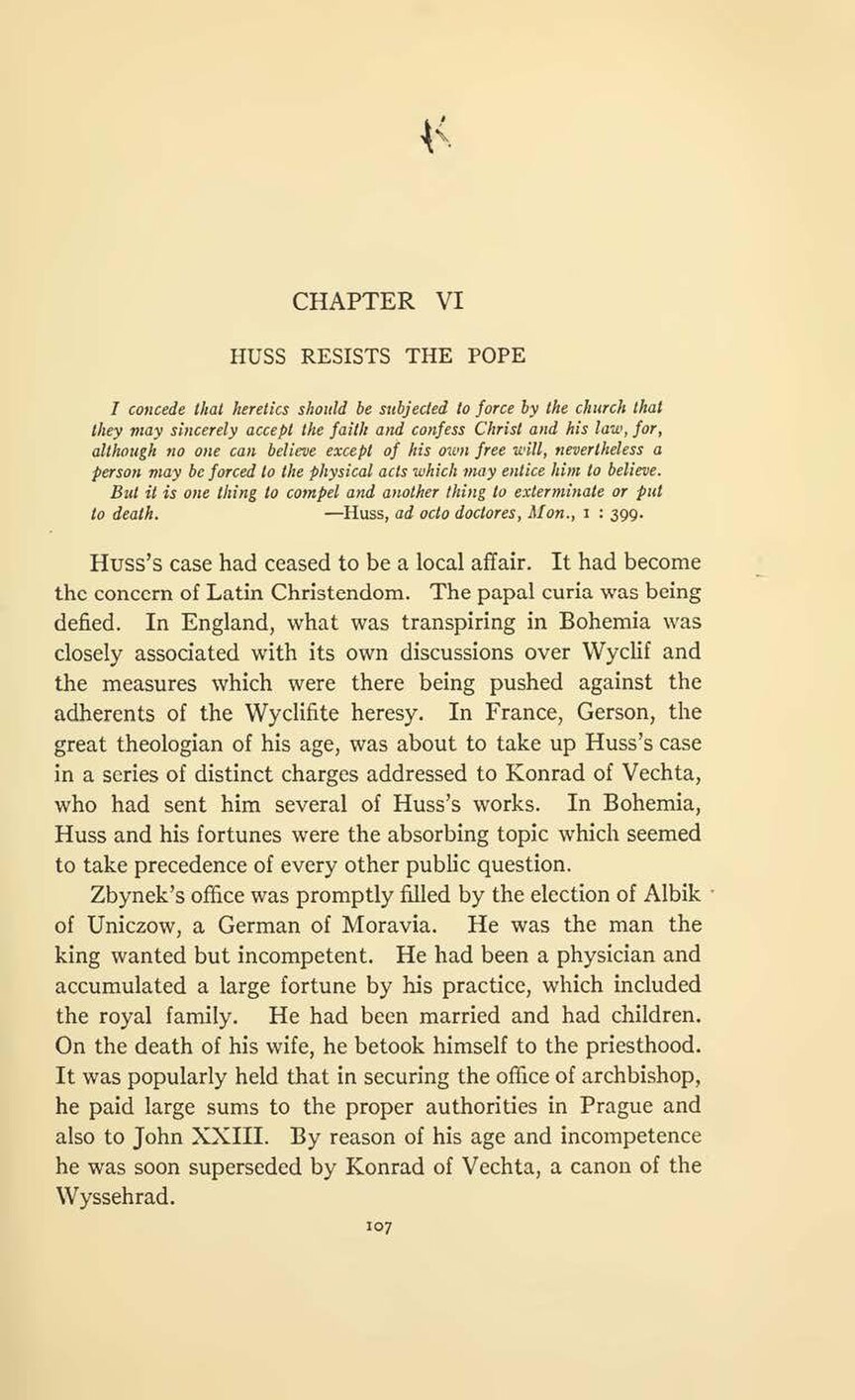CHAPTER VI
HUSS RESISTS THE POPE
I concede that heretics should be subjected to force by the church that they may sincerely accept the faith and confess Christ and his law, for, although no one can believe except of his own free will, nevertheless a person may be forced to the physical acts which may entice him to believe.
But it is one thing to compel and another thing to exterminate or put to death.—Huss, ad octo doctores. Mon., 1: 399
Huss’s case had ceased to be a local affair. It had become the concern of Latin Christendom. The papal curia was being defied. In England, what was transpiring in Bohemia was closely associated with its own discussions over Wyclif and the measures which were there being pushed against the adherents of the Wyclifite heresy. In France. Gerson, the great theologian of his age, was about to take up Huss’s case in a series of distinct charges addressed to Konrad of Vechta, who had sent him several of Huss’s works. In Bohemia. Huss and his fortunes were the absorbing topic which seemed to take precedence of every other public question. Zbynek’s office was promptly filled by the election of Albik of Uniczow, a German of Moravia. He was the man the king wanted but incompetent. He had been a physician and accumulated a large fortune by his practice, which included the royal family. He had been married and had children. On the death of his wife, he betook himself to the priesthood. It was popularly held that in securing the office of archbishop, he paid large sums to the proper authorities in Prague and also to John XXIII. By reason of his age and incompetence he was soon superseded by Konrad of Vechta, a canon of the Wyssehrad.
107
